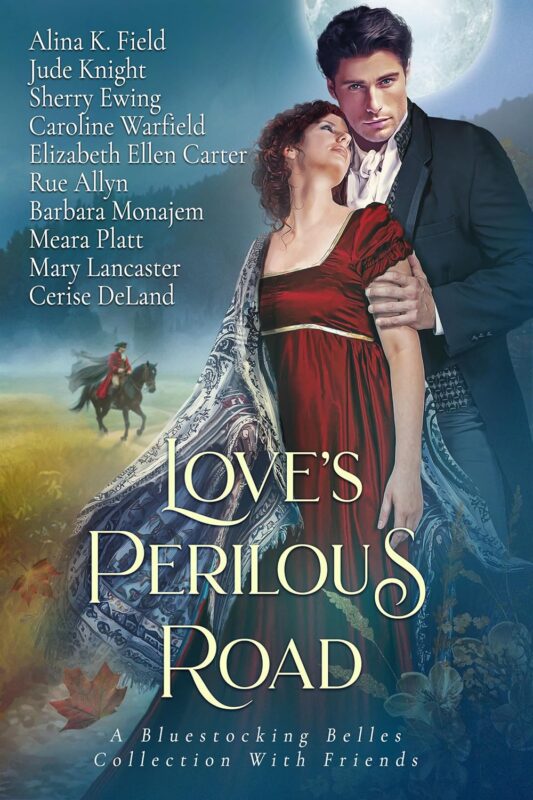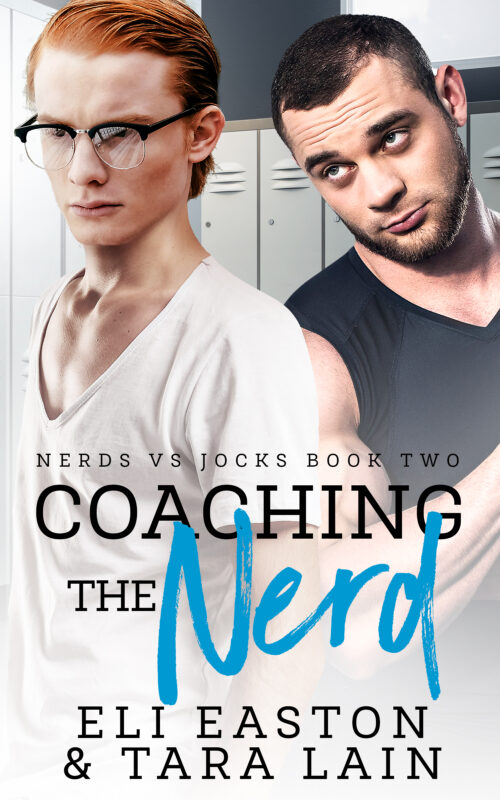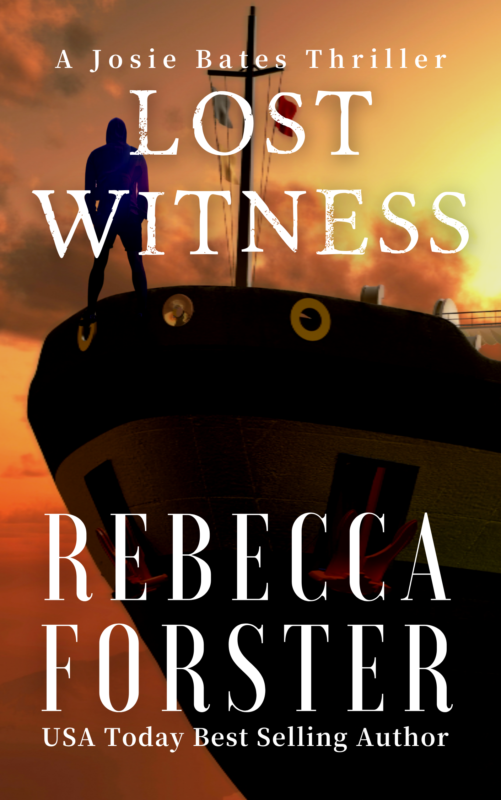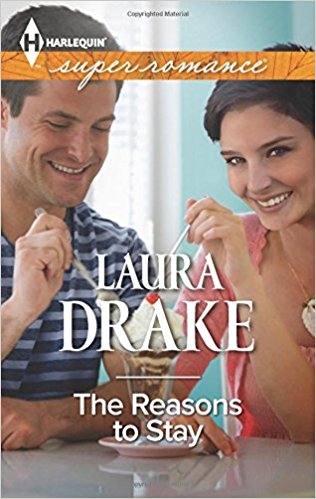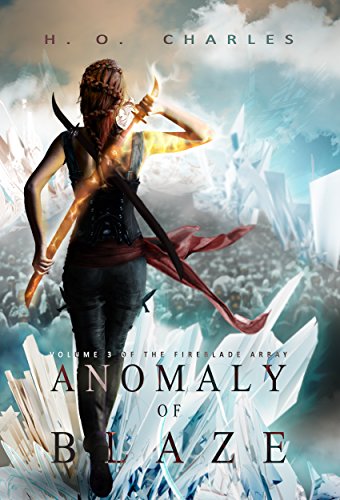Plagiarizing One’s Self by Janet Elizabeth Lynn
November 3, 2019 by Janet Elizabeth Lynn and Will Zeilinger in category Partners in Crime by Janet Elizabeth Lynn & Will Zeilinger tagged as hardboiled mysteries, Janet Elizabeth Lynn, Skylar Drake Mysteries, Will Zeilinger, writing
(Hey it can happen!)
My husband Will Zeilinger and I co-write the Skylar Drake Murder Mysteries, a hardboiled detective series that takes the reader to 1950s Los Angeles and other areas of the west. GAME TOWN is the fifth and final book of the series.
Nothing strikes fear in an author’s heart more than plagiarizing one’s self. Especially when writing a series. This fear turns into terror when there are two people writing multiple books or a series. Plagiarizing might include duplicating a name, scene, dialogue or even a character. This is a big no-no.
What’s more frustrating is remembering who is related to whom, who’s married to who, who’s kids or pet belongs to which family, and most of all who’s in a relationship with who. When writing multiple books or series, this can become mind boggling.
Will and I made the mistake of plagiarizing a name we used three books earlier and nothing can be more embarrassing than when a reader or fan brings it to your attention on Goodreads! We had to figure out a way to keep this from happening … again.
We decided to use a family/genealogy chart to plot out who is who, locations, plots and subplots and 2-3-word descriptions.
During our research, we found various styles of family charts. We tried several styles, the third style worked beautifully for us. This is especially useful when one of us is working on a different section of the book and needs to find a particular location or relationship without interrupting the other.
Its like a road map, it can get you where you want to go when you get lost.
You can download this particular chart or print it out at https://www.vertex42.com/ExcelTemplates/family-tree-template.html.
Here is a sample of the Game Town book chart.

The results, The Skylar Drake Murder Mystery series, SLIVERS OF GLASS, STRANGE MARKINGS, DESERT ICE, SLICK DEAL and GAME TOWN. And yes…we are still married!
~Janet
Website: www.janetlynnauthor.com
Blog: themarriedauthors.blogspot.com
The Skylar Drake Mystery Series
0 0 Read more
Is the F-word a bomb?
October 31, 2019 by The Extra Squeeze in category The Extra Squeeze by The Extra Squeeze Team, Writing tagged as HO Charles, Jenny Jensen, Rebecca Forster., The Extra Squeeze, The F bomb, writing
From The Extra Squeeze Archives
Is the F word a bomb?
We’ve read books with it all over the place and yet notice that readers object to it.
Does anyone really like using it?
Would another word do?
When is it necessary?

Rebecca Forster
USA Today Bestselling author of 35 books, including the Witness series and the new Finn O’Brien series.
Is the F word a bomb?
What kind of fucking question is that?
What kind of friggin’ question is that?
What kind of question is that?
Actually, this is a great question and one I am happy to weigh in on because the use of the F-word had an impact it had on my career.
I began my career as a romance writer (I was fired from this gig because I kept killing characters before they fell in love. My editor suggested a genre change.) I never used the F-word when I wrote romance. When I moved to contemporary women’s fiction I used it sparingly in these longer, more intricately plotted books (the word was only uttered by bad guys).
When I upped the ante and moved into a male dominated genre – legal thrillers – everything changed. Writing became tighter, characters multi-faceted, plots ‘torn from the headlines’ were much grittier. In my writing the F-bomb was spoken by hard charging attorneys and socially marginalized criminals alike to underscore their tenacity for fighting for justice in the former instance or illustrate disdain for the system in the latter.
Hostile Witness* was the first book where I really let loose. Lots of male thriller writers used the word, why not me? My editor at Penguin/Putnam had no problem with it and approved the book. When the Hostile Witness was traditionally published, I received no letters of complaint.
Then came the Internet. I republished the first three books of the Witness Series* and readers started posting reviews as easily as they clicked their Kindle. I remember the first bad review I received because of my use of the F word. It said, “The language in this book is vile. I will never read this author again.”
That stopped me cold, so I went back to the files and searched how many times I had used the F-word. I was shocked and embarrassed by what I found. In my quest to establish myself as a hard-edged thriller writer, I had gone overboard. Using profanity to the degree I had took the reader out of the story at best and offended them at worst. I asked myself, was there a better way to write a scene? A better way to inform a character? Had I been a lazy author and fallen back on a word rather than my skill to get a point across?
The answer to all these questions was yes. Now I use the word friggin’ or cut the word off at Fu — and let the reader’s mind fill in the blank. Bottom line, I took the review to heart, objectively looked at my work and made an informed decision before I re-edited the book. Did I lose anything by banning the F-word?
(F-word deleted) no.
*Hostile Witness is Free to readers.
**Sign up for my mailing list and get Hostile Witness and the Spotlight Novella, Hannah’s Diary, Free.

Jenny Jensen
Developmental editor who has worked for twenty plus years with new and established authors of both fiction and non-fiction, traditional and indie.
The Urban Dictionary defines ‘F-bomb’ as “the strongest weapon in one’s verbal arsenal” (a bit extreme, but it makes the point). Is it necessary to use in fiction? No, not necessary, but sometimes appropriate. The plot, the scene, the character, the action, the tone can all come together to make the F-word the only adjective or expletive that works. In that case, it should be a shocker – a strong, realistic part of the narrative rhythm. The word should be chosen with consideration and, by all the writing gods, don’t overuse it. Repetition strips the word of any value; it just becomes distasteful, silly and embarrassingly adolescent.
It wasn’t long ago a writer would never consider using the word, nor would a publisher let them, although the F word was understood to have the strength of a bomb.
from The Maltese Falcon (Dashiell Hammett, 1930)
The boy spoke two words, the first a short guttural verb, the second ”you”.
“People lose teeth talking like that.” Spade’s voice was still amiable though his face had become wooden.
Great, right!? There are so many options for word smithing around the F-word but that requires thought and skill. Too many authors take the easy way out and use it as verb, adjective and noun. That’s just lazy or the mark of a poor writer.
I recently ran across this Amazon review:
I gave it 5 stars, because the writing, the sense of humor the detective has, and the story! All great! In fact, you are such a good writer, you don’t need to use the “F” word as much as you do! Your characters are great without it!
Such a good writer…you don’t need to use… the reviewer said. That’s exactly what I mean.

Well, a bomb is something designed to explode on impact, so I guess if you want to f-bomb effectively, it needs to be unexpected! In that case, it’ll only detonate properly in the most delicate, sweetest and appeasing of godly novels! But, of course, readers don’t always like to be shocked so hard that they fall off their chairs, and using language that is not in-keeping with the story will only make it jar, in my opinion. As writers, we aim to torture and make our readers emotional from time to time, but there’s intent and then there’s intent.
I don’t mind using swear words – their offensiveness changes over time, and the F-bomb (being polite for you all here), is hardly the most offensive word or phrase out there at the moment. In some novels it’s absolutely appropriate to include swearing, and the target readership will reflect that. I do think over-reliance on a single swear word is a negative thing though. There are so many varied ways of swearing, and it’s up to the author to come up with setting- or character-appropriate vocabulary. In my fantasy novels, I frequently use ‘follocks!‘ (an obvious portmanteau of f**k and boll**ks), because it conveys the emotion I want, but also carries humour and sets the imaginary world apart from this one.
What do you think of using the F-word in fiction? Let us know in the comments.
Ever wonder what industry professionals think about the issues that can really impact our careers? Each month The Extra Squeeze features a fresh topic related to books and publishing.
Amazon mover and shaker Rebecca Forster and her handpicked team of book professionals offer frank responses from the POV of each of their specialties — Writing, Editing, PR/Biz Development, and Cover Design.
Do you have a question for The Extra Squeeze? Contact us here.

Start Somewhere by Kitty Bucholtz
October 9, 2019 by Kitty Bucholtz in category It's Worth It by Kitty Bucholtz, Writing tagged as beginning, filling the pages, journals, Kitty Bucholtz, writing
I was out buying an electric blanket yesterday (it’s winter in New Zealand) and I passed by a rack of blank books and journals that were on sale. I can’t not stop when I see pretty journals despite the fact I haven’t yet used all the ones I have. So I paused and looked them over and what do you know, one of them caught my attention.
If you’ve seen any of the pictures I’ve been posting on Facebook, you know I live in a spectacularly beautiful area with amazing sunrises and sunsets. And this journal reminded me of the view right outside my front window. But more than that, the title really spoke to me.

Time to start – somewhere – anywhere
START SOMEWHERE
Not just “start” or “do it now” or “get moving” but it seemed to say, “jump in, even if you don’t know how deep the water is.”
That’s a little scary, and that’s exactly why I sometimes procrastinate doing things I want to do. I know the wisdom of “count the cost” and I don’t think it’s a good idea to jump into something when you don’t know how long it will take or how much it will cost. Not unless you have plenty of time and money, and who does?
I’ve been talking about starting my own podcast for two years or more, and I’ve done a lot of research on what podcasting entails. I’m excited about it. I know what topics I’m going to cover and the format the show will take. I have all the right equipment and software. But I haven’t put a start date on it yet because, as usual, I never know when I’m suddenly going to up and move (husband’s job). I’m scared I’ll get started and suddenly find myself out of time and behind in my schedule and disappointing my listeners.
START SOMEWHERE
Jump in.

Blank pages calling out to be filled
I bought the journal. I’m starting my podcast now by getting the information in my head written down. Step 1 on the journey.
The blank pages are calling out to me, offering excitement and adventure. And you know what’s doubly exciting about that to me? That’s what I want my podcast to do for my listeners. I want to encourage people to get started, to keep going, to see the hardship as part of the adventure, to understand that trepidation grows along the sides of every new path.
Hopefully, I won’t release the first episode or two and find myself in the middle of another round-the-world move. But I’ve got lots of blank pages here to fill with ideas on how to manage the work despite a potential move.
Some writers hate the blank page, the blinking cursor. But something about journals begs you to fill the pages. Now. With something. Maybe you’ve got a beautiful blank journal sitting around that you forgot about. Go find it. See if the pages call out to you like this one does to me.
Write down your ideas.
Begin your adventure.
START SOMEWHERE
Writing The Dreaded Book Blurb by Jenny Jensen
September 19, 2019 by Jenny Jensen in category On writing . . . by Jenny Jensen tagged as Blrubs, clickbait, Marketing, writing
A popular post from our archives.

Writing The Dreaded Book Blurb
Every author faces this last crucial challenge. You’ve already spent untold hours researching, writing and editing your book. Your title hits just the right poetic note. You’ve gone several tense rounds to find the perfect cover. All that remains is the book blurb, the opening salvo in the promotional war. This is the first (and sometimes only) chance to grab a reader and compel them to buy the book. And so, like click bait, you need to lure your reader with an honest but irresistible snap shot.
It’s an Art
It’s an art, this writing of a synopsis that isn’t a synopsis, this sell copy that isn’t an ad. And for something that isn’t a science there are strict rules: you have to be honest – no misleading the reader. No spoilers or why bother to read it – which can be tough since the spoiler is often the most exciting part of the story. Keep it at 200 words or less and don’t make it one run-on paragraph. Use the proper keywords for your genre. Reveal something about the antagonist – readers like to know if they can root for the hero. This isn’t the place to relate the entire plot but you have to provide the zeitgeist, the feel of the tale. No easy task.
A lot of the writers I work with find this daunting and ask for help, which I am happy to provide. I think it’s difficult for the writer to step far enough away from their work to pick out the enticing, salient points and present them with the tension and intrigue that make for a successful blurb. To the author, all story points are important. I get that, but as an avid reader I know what works for me in a blurb. It’s not how much is said, but how compellingly it’s said.
An Example
I start with a deconstruction approach. It’s possible to distill any story down to bare bones. In his book Hit Lit – Cracking the Code of the Twentieth Century’s Biggest Bestsellers James W. Hall provided the most distilled example I’ve ever seen. This is a beloved tale that we all know intimately: “A young girl wakes in a surreal landscape and murders the first woman she sees. She teams with three strangers and does it again.” It’s short, accurate and intriguing but would it sell the book?
I wouldn’t distill it down that far but it makes a great beginning. What if we knew something about the young girl – an orphan, a princess, a refugee? And what about the surreal landscape – gaping desert, oozing swamp, forbidding mountains? Then the three strangers – female, male, older, menacing, kindly? Is all this murdering spurred by necessity, thrills, defense, the three strangers or is it unintended manslaughter? And finally, what is the young girl up to – revenge, enlightenment, finding a way out of the surreal landscape? Flesh out those points, add some genre keywords, reference any kudos and you could turn those original 24 spartan words into a 160 – 200 word blurb that would peak curiosity and entice the shopper to buy.
If you can step away from the totality of your story and deconstruct the plot to the primary elements, then present those elements in a provocative way you can create an effective selling tool with your book blurb. BTW, that book Hall described? The Wizard of Oz.
Jenny
2 0 Read moreSister Carmelita Put the Fear of God in Me
September 15, 2019 by Rebecca Forster in category The Write Life by Rebecca Forster tagged as Catholic School, inspiration, Suspense, writing
Rebecca is swamped today, so we’re featuring one of her more popular posts from our archives.

The day I stood in the choir loft surrounded by my fourth grade peers I had no idea that I was about to learn a lesson in suspense, terror, fear, retribution and resolution that would lead me to a career as a thriller author.
The day was hot, air-conditioning was unheard of, and we wore our itchy, ugly, brown wool Catholic school uniforms year ‘round to save our parents money. I was a very good girl. I never drew attention to myself, folded my hands with fingers pointing heavenward when I prayed, picked up trash on the playground and helped pass out papers in class. But that day, I made a blunder that put me in Sister Carmelita’s crosshairs. As she raised her arms and positioned her baton in anticipation of another rousing chorus of a hymn I have long forgotten, I rolled my eyes. Yep, I rolled them to the back of my little ten-year-old head in frustration and exhaustion.
Sister Carmelita cut her own my way. I realize now that she had mastered the art of eye cutting because she couldn’t move her head given her the box-like wimple. Everyone stopped breathing. No one knew what I had done, only that I had done something very, very bad.
“Miss Forster.” Sister Carmelita’s voice was modulated appropriately for God’s house. “Wait after choir.”
My stomach lurched. I felt light headed. I was doomed.
Sister Carmelita is long gone. During her time on earth she faced changes in her church and her life, but I doubt she ever knew how that day changed me. So, if you’re listening, Sister, I want you to know that, 30 years later, that moment sealed my fate. I spend my days writing thrillers, trying to recapture the exquisite sense of suspense I experienced that day. Here is what you taught me:
1) Less is More: Your understated notice of me, the glitter in your eye, the sound of your voice was more intriguing, more compelling, more enthralling than screaming, railing or ranting.
2) Timing is Everything: All 29 of my classmates knew I was in trouble. I knew I was in trouble. I even knew why I was in trouble (disrespecting you, God, choir practice, country, family and all living creatures with a roll of my eyes), yet you didn’t nip things in the bud with a mere instantaneous admonition. My comeuppance was exquisitely timed. You threw in an extra hymn to extend practice, studiously ignored me, meticulously folded your sheet music as my classmates silently went down the stairs. You waited until the door of the church closed, clicked and locked us together in that big, shadowy church before you turned.
3) The Devil’s in the Details: You were taller than me (back then almost everyone was taller than me), but that wasn’t why I was afraid. It was your whole package, the details of your awesome being that were so formidable. Covered head to toe in black, your face framed by your wimple (which, by the way, looked like the vice used during the Spanish Inquisition), your hands buried beneath the scapular that fell in a perfect column to the tips of your shoes, made for quite a package. But there was more: The scent of nun-perfume (I think it was soap, but it smelled like nun-perfume to me), the clack of those huge rosary beads attached to your wide belt, the squish of your rubber soled shoes. I saw all this, I heard all this, I smelled all this and each sense was heightened because of the hush surrounding us.
I remember your methodical advance into my personal space. I remember you lowering your eyes as I raised mine. The suspense was heart-stopping, the anticipation of my penance almost unbearable. Quite frankly, you were terrifying.
But here’s the funny thing: I don’t remember how it ended. Did you scold me, sister? Did you show mercy and forgiveness? I only remember being terrified. Like the brain of the seven year old Stephen King swears gives him inspiration for his horror books, you, Sister Carmelita, inspire every sentence I write in every thriller novel I pen. For that, I can’t thank you enough.
I also want you to know, I have never rolled my eyes at anything since that day in the choir loft.
Affiliate Links
A Slice of Orange is an affiliate with some of the booksellers listed on this website, including Barnes & Nobel, Books A Million, iBooks, Kobo, and Smashwords. This means A Slice of Orange may earn a small advertising fee from sales made through the links used on this website. There are reminders of these affiliate links on the pages for individual books.
Search A Slice of Orange
Find a Column
Archives
Featured Books
LOVE’S PERILOUS ROAD
Travel, houseparties, smugglers, spies--and a mysterious highwayman. Who is the infamous Captain Moonlight? And how many lives will he change—for good or for ill?
More info →
LOST WITNESS: A Josie Bates Thriller
The sands of time are running out . . .
More info →ANOMALY OF BLAZE
A new monster has taken up residence in her mind...
More info →Newsletter
Contributing Authors
Search A Slice of Orange
Find a Column
Archives
Authors in the Bookstore
- A. E. Decker
- A. J. Scudiere
- A.J. Sidransky
- A.M. Roark
- Abby Collette
- Alanna Lucus
- Albert Marrin
- Alice Duncan
- Alina K. Field
- Alison Green Myers
- Andi Lawrencovna
- Andrew C Raiford
- Angela Pryce
- Aviva Vaughn
- Barbara Ankrum
- Bethlehem Writers Group, LLC
- Carol L. Wright
- Celeste Barclay
- Christina Alexandra
- Christopher D. Ochs
- Claire Davon
- Claire Naden
- Courtnee Turner Hoyle
- Courtney Annicchiarico
- D. Lieber
- Daniel V. Meier Jr.
- Debra Dixon
- Debra H. Goldstein
- Debra Holland
- Dee Ann Palmer
- Denise M. Colby
- Diane Benefiel
- Diane Sismour
- Dianna Sinovic
- DT Krippene
- E.B. Dawson
- Emilie Dallaire
- Emily Brightwell
- Emily PW Murphy
- Fae Rowen
- Faith L. Justice
- Frances Amati
- Geralyn Corcillo
- Glynnis Campbell
- Greg Jolley
- H. O. Charles
- Jaclyn Roché
- Jacqueline Diamond
- Janet Lynn and Will Zeilinger
- Jaya Mehta
- Jeannine Atkins
- Jeff Baird
- Jenna Barwin
- Jenne Kern
- Jennifer D. Bokal
- Jennifer Lyon
- Jerome W. McFadden
- Jill Piscitello
- Jina Bacarr
- Jo A. Hiestand
- Jodi Bogert
- Jolina Petersheim
- Jonathan Maberry
- Joy Allyson
- Judy Duarte
- Justin Murphy
- Justine Davis
- Kat Martin
- Kidd Wadsworth
- Kitty Bucholtz
- Kristy Tate
- Larry Deibert
- Larry Hamilton
- Laura Drake
- Laurie Stevens
- Leslie Knowles
- Li-Ying Lundquist
- Linda Carroll-Bradd
- Linda Lappin
- Linda McLaughlin
- Linda O. Johnston
- Lisa Preston
- Lolo Paige
- Loran Holt
- Lynette M. Burrows
- Lyssa Kay Adams
- Madeline Ash
- Margarita Engle
- Marguerite Quantaine
- Marianne H. Donley
- Mary Castillo
- Maureen Klovers
- Megan Haskell
- Melanie Waterbury
- Melisa Rivero
- Melissa Chambers
- Melodie Winawer
- Meriam Wilhelm
- Mikel J. Wilson
- Mindy Neff
- Monica McCabe
- Nancy Brashear
- Neetu Malik
- Nikki Prince
- Once Upon Anthologies
- Paula Gail Benson
- Penny Reid
- Peter J Barbour
- Priscilla Oliveras
- R. H. Kohno
- Rachel Hailey
- Ralph Hieb
- Ramcy Diek
- Ransom Stephens
- Rebecca Forster
- Renae Wrich
- Roxy Matthews
- Ryder Hunte Clancy
- Sally Paradysz
- Sheila Colón-Bagley
- Simone de Muñoz
- Sophie Barnes
- Susan Kaye Quinn
- Susan Lynn Meyer
- Susan Squires
- T. D. Fox
- Tara C. Allred
- Tara Lain
- Tari Lynn Jewett
- Terri Osburn
- Tracy Reed
- Vera Jane Cook
- Vicki Crum
- Writing Something Romantic
Affiliate Links
A Slice of Orange is an affiliate with some of the booksellers listed on this website, including Barnes & Nobel, Books A Million, iBooks, Kobo, and Smashwords. This means A Slice of Orange may earn a small advertising fee from sales made through the links used on this website. There are reminders of these affiliate links on the pages for individual books.



























